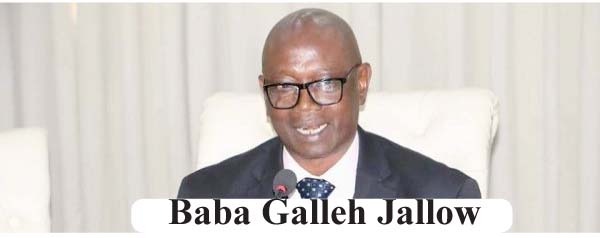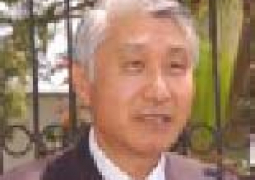
Justice
Ebrima Jaiteh of the High Court in Banjul on 11 November, 2019, ruled against
the application made by the defence counsel, Abdoulie Sissoho, who is
representing Yankuba Touray in a murder case, for the court to issue a bench
warrant for the arrest of Baba Galleh Jallow, the TRRC executive secretary, for
failing to appear in court.
Justice
Jaiteh told the court that since the subpoena to the executive secretary of the
TRRC was brought under wrong judicial form, the said subpoena issued on 25
October, 2019, was set aside by the court. He went on to say that he reached
the conclusion that the summons served on the executive secretary of the TRRC
was brought under the wrong Criminal Procedure Form in the Third Schedule of
the High Court Rules.
He
said he had listened very carefully to both submissions by the defence counsel
and the state counsel with great interest. He noted that it was important to
emphasise that a subpoena is an order of court and any person summoned to give
evidence or to produce documents is bound to attend the court, notwithstanding
any objection in law, there may be to his or her giving evidence or producing the
document required.
“In
our instant case, the prosecutor duly informed this court that there was a
representative present in court from the TRRC in compliance with the order of
this court. Notwithstanding the fact that the prosecutor has informed the court
that there was a representative from the TRRC, the defence counsel proceeded to
apply and urged the court to issue a bench warrant of arrest for the executive
secretary of the TRRC to appear before this court to show cause as to why he
should not be cited for contempt of court order,” he told the court.
Justice
Jaiteh went on to say that the prosecutor strongly objected to the defence
counsel’s application for a bench warrant of arrest to be issued against the
executive secretary of the TRRC. “The cardinal principle of law is that there
are two varieties of subpoenas. There is subpoena decus tecum, which requires a
witness to appear and bring specific documents or records and there is subpoena
ad testificandum, which compels a witness to attend and give evidence and
produce documents,” he informed the court.
He
further stated that where it is held that where a person is issued with a
subpoena to produce a document, the mere production of the document is
sufficient and he or she is not liable to be sworn in as a witness nor
cross-examined. He added that the defence counsel submitted that the subpoena
in question was brought pursuant to Section 221 of the Evidence Act 1994, which
deals with the production of documents without giving evidence.
“In
my view, the provision of Section 221 of the Evidence Act 1994 as cited is
intended for a person, whether a party to the case or not and in custody of
documents to produce same before the court. Such a person is not to testify in
the trial but to produce documents so required. Pursuant to Section 221 of the
Evidence Act, what is required of the executive secretary under the
circumstances is to produce documents to this court under his custody and he is
not expected or required to mount the witness box and sworn in as a witness and
give evidence and be cross-examined,” Justice Jaiteh noted.
He
informed the court that he had noticed that the defence counsel used ‘Form 14’
of the Third Schedule of the High Court Rules which is intended to summon a
witness to attend court and testify as a witness as to all that he or she knows
in the case and also to bring and produce documents at trial. “I must say that
the executive secretary of the TRRC is not a witness in this criminal trial and
is not expected to testify as a witness and therefore the Criminal Judicial
Form used by the defence counsel is the wrong form and it is misleading hence
the executive secretary is commanded to attend court and testify as a witness.
The proper Judicial Form in the Third Schedule that the defence counsel ought
to use is ‘Form 17’ which is a notice to produce documents at trial,” he
declared.
He
refused to award cost to the state.
At
this juncture, Counsel Sissoho rose and told the court that he received a
letter dated 8th November, 2019, from the state counsel, A.M. Yusuf, for
adjournment of the case. He noted that there was no cogent reason advanced to
the court to adjourn the case. He said that his client is languishing in prison
for four months. He applied for the prosecution to close their case.
In
his ruling, the presiding judge said that the letter indicated that the
Ministry of Justice was organising a workshop, noting that it was the
discretion of the court to adjourn the case. “The prosecution is diligent in
the prosecution of the case,” he went on.
He
adjourned the case to 18 November, 2019, for further cross-examination of the
witness.



